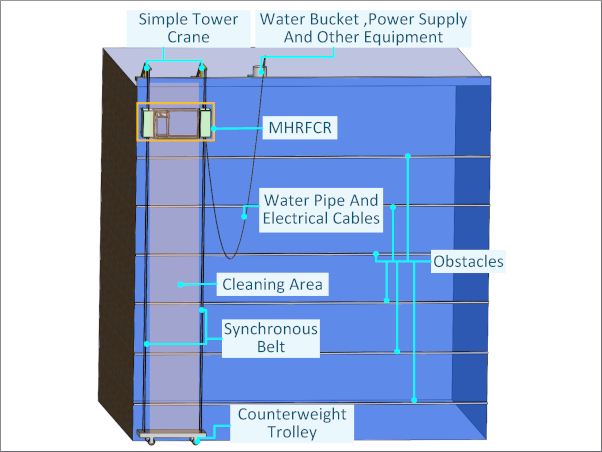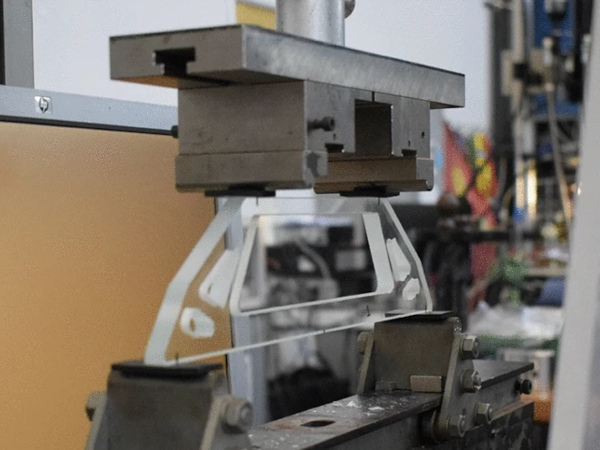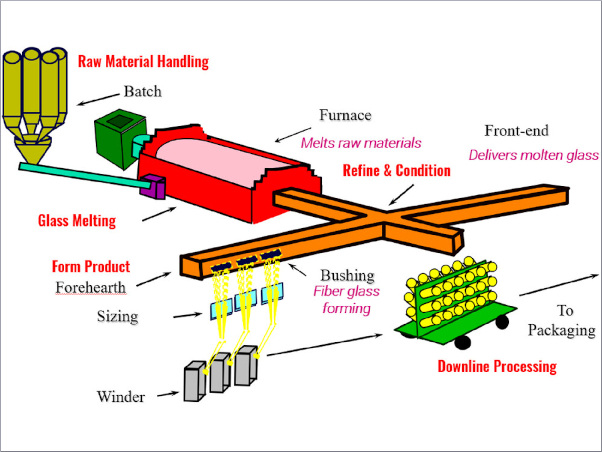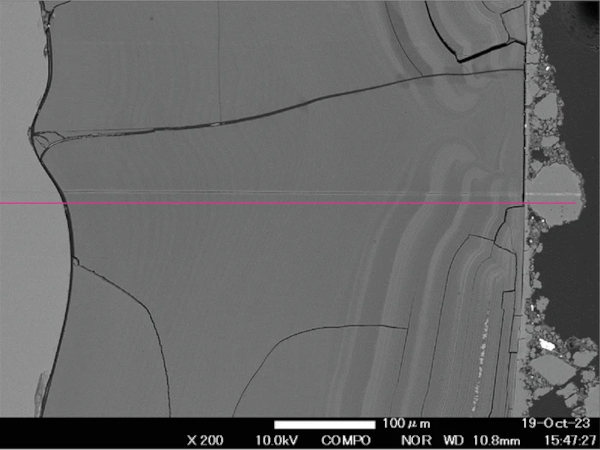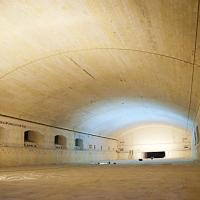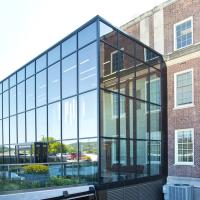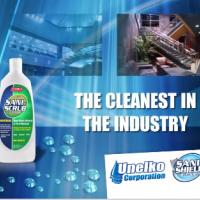Glass is used in many of our everyday activities and is included in a multitude of products all around us, such as windows, doors, partitions, furniture, cookware, automotive windows and sunroofs, and food and beverage containers.
Additionally, glass can be cleaned easily with non-abrasive (and often antibacterial) cleaners, which is another reason why glass has helped us through many unfortunate public health events like epidemics and pandemics.
Manufacturing Glass: Automating to Ensure Safety and Sanitation
Vitro float glass is produced using a continuous, highly-automated process where it is produced, packaged and shipped without ever being touched by human hands.
Raw materials such as sand arrive by railcar or truck and are automatically unloaded and conveyed to storage silos. Once needed, these materials are conveyed, weighed and mixed for entry into the glassmaking thermal reactor.
The thermal reactor operates at over 2,500F, which entirely melts the sand and other raw materials. At the same time, this extreme temperature destroys all organic materials, organisms and micro-organisms found within the raw batch materials, which ensures that glass is produced with no bacterial or viral contaminants.
When an order is to be filled, glass is retrieved from storage and loaded onto a truck via specialized handling equipment designed to avoid human contact with the glass.
Unique Characteristics of Glass
Glass is a unique material because it does not absorb anything, nor does it exude anything. However, glass will allow light to enter spaces while providing physical separation and protection. Because of this, glass is an ideal material for wall coverings and windows in places that are subject to specific hygiene requirements, such as hospitals, pharmacies and other healthcare facilities. Glass also can be used as a shield to create a physical barrier between people in healthcare settings like clinics and laboratories as well as a wide range of public facilities.
Glass can also help protect people and objects from airborne contaminants. “Sneeze guards” are one example where glass can be used to protect individuals, food and other merchandise at retail registers and service counters from human-expelled bacteria and viruses.
Understanding the Spread of Bacteria and Viruses
Five seconds of contact is enough time to pick up 99% of bacteria from a contaminated surface. Although most micro-organisms are harmless to humans, exposure to some bacteria and viruses can have serious health consequences.
Bacteria and viruses can survive on surfaces such as plastic, stainless steel, benchtops and glass, among others. These materials can support infectious virus, expelled in droplets, for up to 72 hours.
Fortunately, glass is easily cleaned and disinfected and can be repeatedly cleaned while maintaining its original luster and appearance. To reduce your chance of catching or spreading a virus, frequently clean and disinfect all contact surfaces and objects in your home and office.
Summary
The unique characteristics and properties of glass make it an excellent material choice for scenarios where easy-to-clean surfaces and/or physical separation is required. Glass can provide clear views, visual transparency and a decontaminated surface if properly maintained by frequent cleaning and disinfecting. Glass as produced by Vitro does not contain any human-expelled bacteria or viruses since our glass making process is completely automated.
For complete technical information about decontaminating glass surfaces, read Vitro Architectural Glass Technical Document TD-154. For any other glass questions, please contact Vitro Glass or call 1-855-VTRO-GLS (1-855-887-6457).




